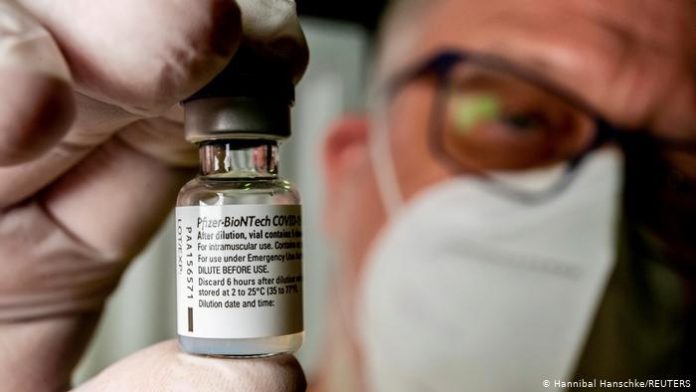- In December 2019 the UK became the first country to approve the Pfizer/BioNTech vaccine for emergency use.
- On Thursday, WHO issued its first emergency use approval to the Pfizer vaccine.
- WHO’s emergency validation will ensure vaccine supply to lower and middle-income countries.
The Pfizer/BioNTech vaccine first made headlines in early December when the United Kingdom approved it for emergency use. Since then, several countries including the US, Canada, and Bahrain have given emergency approval to the vaccine. On Thursday, 31st December, the World Health Organization (WHO) issued Pfizer an emergency approval. Thus, making it the first COVID-19 vaccine to be listed under WHO’s Emergency Use Listing (EUL).
This is a very positive step towards ensuring global access to COVID-19 vaccines. But I want to emphasize the need for an even greater global effort to achieve enough vaccine supply to meet the needs of priority populations everywhere.
Dr. Mariangela Simao, WHO Assistant-Director General for Access to Medicines and Health Products
According to WHO’s statement, a team of international experts reviewed the data available from Pfizer’s phase 2 and 3 trials. They analyzed the vaccine’s safety, efficacy, and quality and found the benefits outweighed the potential risks. Thus, meeting their criteria for emergency approval.
What Does WHO Approval Mean for Developing Countries?
Even before the approval of the coronavirus vaccines, several countries including the UK and US booked large doses of the vaccines for themselves. Thus, ensuring first access upon approval by their regulatory authorities. Moreover, a report by Amnesty International showed that wealthier countries like the US and Canada had secured 96% of Pfizer’s doses. This raised concerns about the unfair disadvantage many developing countries will face to vaccine distribution as a result.
However, WHO approval will open doors for developing countries that lack regulatory bodies or the resources necessary for the distribution of the vaccine. Additionally, the decision will enable UNICEF and the Pan-American Health Organization to acquire the vaccine for developing countries.
WHO and our partners are working night and day to evaluate other vaccines that have reached safety and efficacy standards. We encourage even more developers to come forward for review and assessment. It’s vitally important that we secure the critical supply needed to serve all countries around the world and stem the pandemic.
Dr. Mariangela Simao, WHO Assistant-Director General for Access to Medicines and Health Products
The Challenges
Although Pfizer is the first to receive WHO approval, its storage and distribution remain a challenge. The mRNA vaccine requires ultra-cold storage facilities which are not readily available everywhere.
The Oxford vaccine that was recently approved by the UK, has also applied for WHO approval. Compared to Pfizer, it is cheaper and easily stored at normal fridge temperatures. Thus, making its distribution easier. Furthermore, the vaccine’s manufacturers have committed to supplying millions of doses of the vaccine to low- and middle-income countries at a low cost.
WHO’s group of experts will now meet on January 5 to design policies for the Pfizer vaccine’s distribution. They will also discuss the setting up of cold supply chains in countries with limited resources.
Reference:
WHO Issues Its First Emergency Use Validation for a COVID-19 Vaccine and Emphasizes Need for Equitable Global Access. 31 Dec. 2020, www.who.int/news/item/31-12-2020-who-issues-its-first-emergency-use-validation-for-a-covid-19-vaccine-and-emphasizes-need-for-equitable-global-access.




